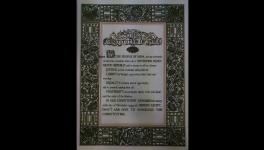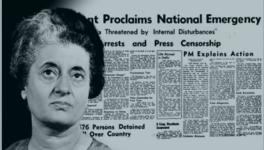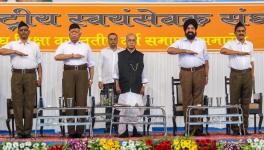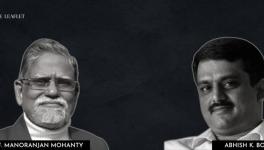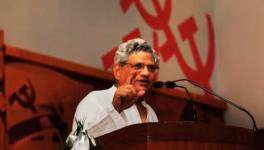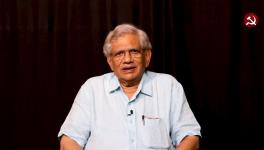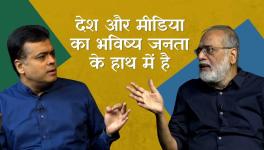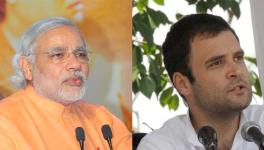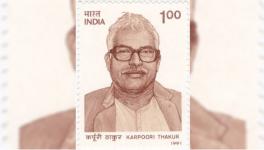A New Book Offers No Fresh Insight on Indian Agencies
Vikram Sood, the author of ‘The Ultimate Goal’ (Harper Collins, 2020), sets out to “deconstruct how nations construct” narratives and to help India build a new and powerful narrative for itself. Sood, formerly of the Indian Postal Service, was the head of the external intelligence and security setup, the Research and Analysis Wing or RAW. He says his book is about how a country can enhance its strength and position by constructing, sustaining, and controlling narratives at home and abroad. He claims that intelligence agencies “invariably play a critical role in this and are often an indispensable tool of statecraft”.
The reality, however, is that powerful states produce powerful narratives, not the other way around. For example, the United States and the People’s Republic of China.
It would seem from the author’s narrative that independent India has not yet produced a powerful narrative at all and that agencies like RAW, which was set up in 1968, have not helped create a sufficiently powerful narrative to make India a powerful state. One would have thought that the Constitution of India, 1950, does provide a powerful enough “narrative” for the country. This basic document finds no mention in the book’s 349 pages.
Further, there is only one eminent Indian leader who contributed to the making of independent India whose name the author finds worth mentioning, namely Prime Minister Narendra Modi who came to power in 2014. Presumably, he alone is creating a powerful narrative for the country! He does not even mention Modi’s party colleague, the late Atal Behari Vajpayee, a former prime minister, who, another former RAW chief, AS Dulat, had incidentally said he admires.
The author fails to admit that ever since its origin, RAW has had no legal framework or charter of duties, quite unlike the Central Intelligence Agency in the United States, which the author is critical of, and which seems to be his main target. In the first eight chapters, the book describes several US agencies, including the CIA, which apparently create misleading “narratives” about the rest of the world intending to promote US global dominance (pp. 1-179).
The book is a factual account, not a critique of global systems or narratives, says the author. Any narrative, the author says, is nurtured over time and sustained by multiple agencies. It seeks to establish the superiority of the economically-developed West and the “inferiority” of less-developed countries. Victory in war bestowed superiority to the victor in the past, while narratives, often constructed to justify a course of action, establish superiority in the present age.
The first eight chapters of the book define what makes a narrative and dwell on how powerful American institutions (including the Church) influence global events. They also explain the role of the military-industrial complex. Chapters nine and ten (pp. 180-234) are about the global “counternarratives” that Russia and China have attempted to create.
The author sharply criticises China for its alleged assertiveness. He does not want to say that China is perhaps responding to the United States’ assertive policies, which have inflicted a cruel trade-war against the country.
China, a developing country like India, though not a democracy like India, has made many notable achievements, including poverty-eradication. China’s economic achievements are impressive too. It is the second most powerful country after the United States. Its narrative on the Belt and Road Initiative (BRI) has merited closer examination by the author.
In 2016, India was the only country to boycott the BRI’s inauguration, though advanced countries like the US and Japan attended the function. The US offers military support to countries like India to oppose China, but it does not match the BRI in providing developmental inputs. Attending the BRI forum might have brought diplomatic and economic advantages to India and an opportunity to discuss its border problems informally.
Columnist Sudheendra Kulkarni (formerly of the BJP), was the only Indian at the BRI inaugural function. He has openly noted that Prime Minister Narendra Modi “scored a self-goal” by ignoring the inauguration.
The book then deals with the corporate dreams that are being manufactured and sold. The author is significantly silent on the narrative of the Islamic Republic of Pakistan India’s close neighbour.
Finally, chapter 12, “India Story”, elaborates the author’s narrative on India. Sood rejects the British view of Indian history and moves on to “Independent India in the World”. He states that the game of creating new narratives that are significantly different from those handed down from the past has “only just begun”. Presumably, Sood means, under the Modi regime since 2014. Astonishingly, he is silent on the entire period from Nehru to Vajpayee. He also ignores the impact of the Constitution of India, 1950, on political developments from 1947 to 2014.
Sood holds that India must formulate its own “counternarrative” based on its rich and legendary historical past from the Indus Valley Civilisation to the present scenario. Those who are critical of the prevailing Indian situation are motivated by the West and internal vested interests. The author goes into the matter at some length.
When the RAW came into existence, Rameshwar Nath Kao headed it. The outfit interpreted and acted on some external security challenges well at the time. These included the creation of Bangladesh and Indian contribution to it. The death of former prime minister Indira Gandhi (the inspiration behind RAW) in 1984 and RN Kao in 2002 impacted the institution. Now RAW needs to sustain its earlier professional integrity, independence, neutrality, objectivity, and accountability.
The Intelligence Bureau and RAW neither got a legal framework nor a charter of duties. In 1979, the LP Singh Committee attempted to reform the IB. It formulated a draft legal framework and charter of duties after the Emergency. But the urge for reforms disappeared after Indira Gandhi returned to power in 1980. Since then, the RAW has been through cataclysmic changes. One would have expected the learned author to attempt writing on much-needed organisational reforms in the RAW. However, he seems to have had a different set of objectives.
The writer was director of the Research and Policy Division of the Union Home Ministry, New Delhi. The views are personal.
Get the latest reports & analysis with people's perspective on Protests, movements & deep analytical videos, discussions of the current affairs in your Telegram app. Subscribe to NewsClick's Telegram channel & get Real-Time updates on stories, as they get published on our website.









